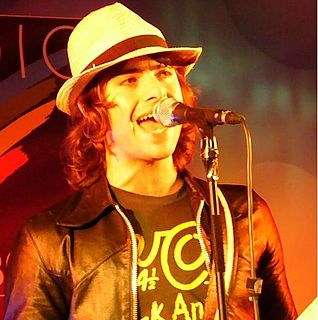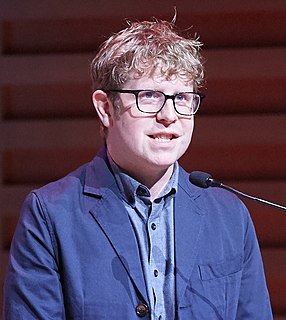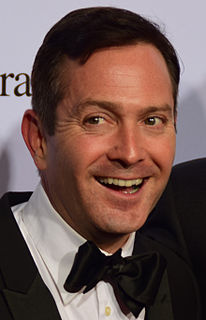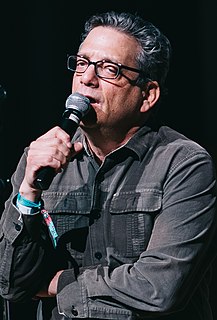A Quote by Ronny Chieng
Writing a whole series was a crash course in screenwriting, which is a very different muscle to standup comedy writing.
Related Quotes
Whether it's writing a monologue or writing standup or writing a screenplay or writing a play, I think staying involved in the creation of your own work empowers you in a way, even if you don't ever do it. It gives you a sense of ownership and a sense of purpose, which I think as an actor is really important.
Every inch of my writing career has been influenced by my screenwriting education. I was lucky enough to go to film school at USC, and I got a crash course in how to tell a story efficiently. I learned structure, pace, my style, how to know your audience, and most importantly, how to take criticism and edits properly.
Horror is like comedy. Woody Allen's comedy is going to be very different from Ben Stiller's comedy which is going to be different from Adam Sandler's comedy which is going to be different from Judd Apatow's comedy. They're all comedy, but they're all very different types and you can enjoy all of them. Horror is the same way.
As you get drawn more and more into other activities, like political activities, very demanding, you have to find different rhythms of writing; I think that's the word I'm looking for, rhythms of creativity which then, of course, become very intense. I think your writing then tends to be very intensified simply because there are other demands which seem equally important.
I've quit writing screenplay [adaptations]. It's too much work. I don't look at writing a novel as work, because I only have to please myself. I have a good time sitting here by myself, thinking up situations and characters, getting them to talk - it's so satisfying. But screenwriting's different. You might think you're writing for yourself, but there are too many other people to please.
Depending on what happens with my directing career, I don't think I'll stop writing, even if I crash and burn in movies and TV. I'll go back to plays. Even if I crash and burn there, I'll write a novel. That's the great thing about writing is that you don't have to wait for people to give you permission to do it.


































